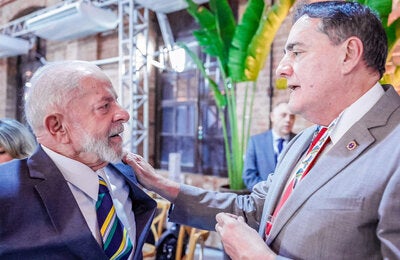Washington, DC, 24 May 2016 (PAHO / WHO) - A group of bioethicists who analyzed the main ethical challenges in response to the outbreak of the Zika virus have concluded that countries are obliged to give all available information on Zika and be explicit about what is not known. Their recommendation from the ethics perspective is that countries should also give women the capacity to choose from all relevant reproductive options.
The Pan American Health Organization (PAHO) recently organized a Zika Ethics Consultation, with support from the Wellcome Trust, a nonprofit organization dedicated to improving health. The group's recommendations on handling ethics cover three important areas of the response: health care delivery, public health and research. The recommendations will be delivered to countries in the coming weeks.
The objective of this consultation was to analyze the Zika outbreak and provide ethically sound guidance on the challenges for countries making decisions about public health response, taking into account the lessons learned during the 2014 Ebola outbreak. Ethical problems that member countries had previously identified as most challenging from an ethics perspective with respect to the response to Zika were considered. Some of these challenges involve dealing with the uncertainty that still surrounds the virus and its consequences such as congenital malformations and other neurological complications. Another challenge of the Zika outbreak from the ethics perspective is that it brings pregnant women to the forefront, and there are intrinsic ethical issues on the sensitive topics related to sexual and reproductive health.
The expert analysis focused on the fact that pregnant women are central in the response, and stressed that the ethical imperative for countries should be to provide women with the necessary support so that they can decide on relevant aspects, in the framework of comprehensive access to sexual and reproductive health. Providing access to available information and explaining what is not yet known about Zika is another ethical obligation, so that every woman can make decisions based on her values, situation, and concrete reality.
As for research during the Zika outbreak, the group agreed on the moral duty to conduct research on Zika and the need to ensure higher than routine ethical safeguards. Those receiving care or participating in research should be informed at all times about the activities being carried out and their participation. The experts also acknowledged that research with pregnant women is critical to reach conclusions based on evidence, and that there is a duty to share the results of research promptly in order to guide decision-making
"Because the Zika virus outbreak is a global health issue, solidarity should guide the collaboration among countries in the delivery of health care, advancement of public health, and conduct of research," the group's conclusions noted.
Participants in the meeting included experts from PAHO and WHO, as well as the National Institutes of Health (NIH), CARPHA and health ministries and institutions from Brazil, Canada, El Salvador and Panama. Also participating were experts from Wellcome Trust and academic institutions such as FLACSO of Argentina; University of Brasilia; McMaster University in Canada; Universidad del Desarrollo in Chile; Universidad del Valle of Colombia; St. George's University in Grenada; Monash University, Australia; Oxford University, UK, and Georgetown University in Washington.



